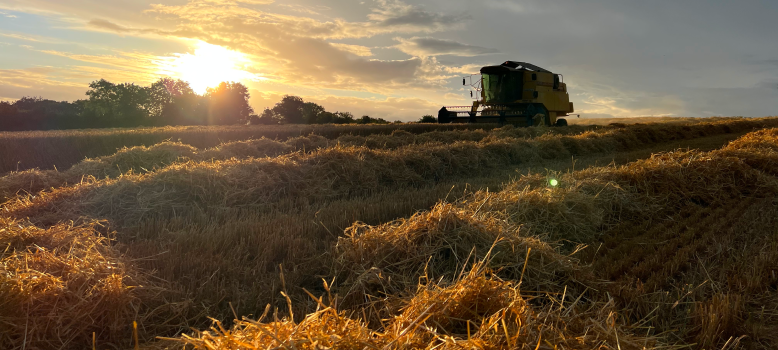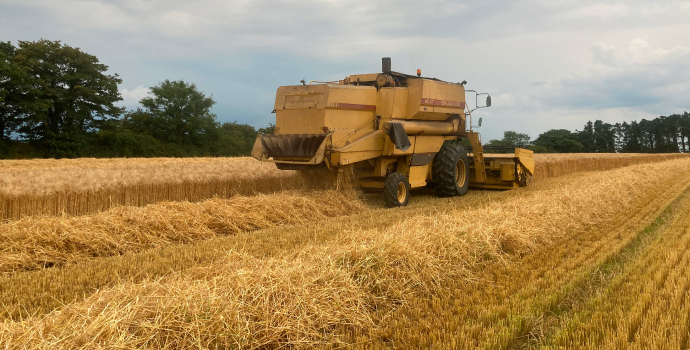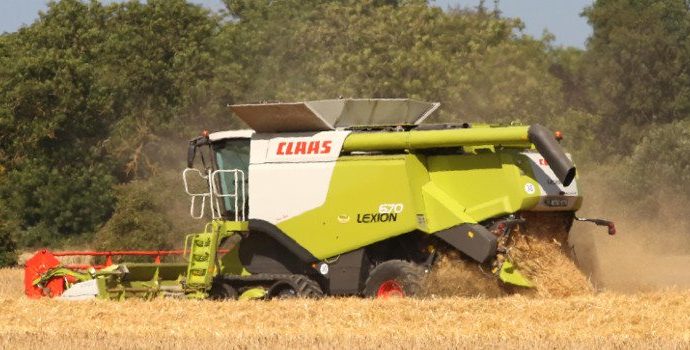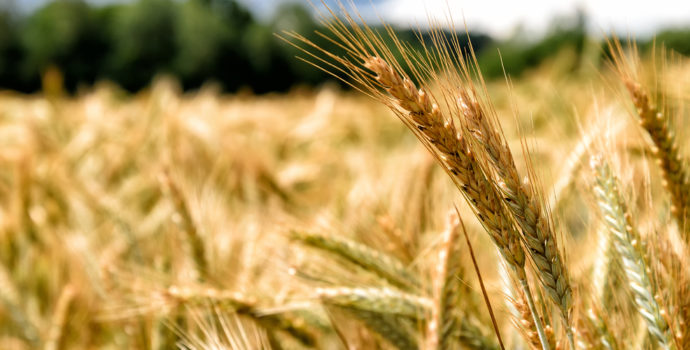Grain Council Report May 2024

Grain Prices
Since the last report in mid-February, international grain prices have made a recovery in March and this trend has continued throughout April. This follows on from the sharp drop experienced in late January and into February, on the back of poor demand for grain and record global grain production in 2023/24.
Native demand for feed is reported as very strong due to wet weather conditions preventing turnout of livestock. Much of the increased demand is reportedly being covered by imported maize at this stage of the year but a quantity of native, dried wheat and barley remains in store. Spot prices for native wheat are around €220-223/t, this is €15-18/t higher than prices quoted in early March. Dried barley is €6-8/t below wheat at around €215/t.
New crop prices for harvest 2024 have strengthened further and remain at a premium to old crop from 2023. The International Grain Council has revised down global grain output by 10.1 million tonnes for 2024/25 compared with 2023/24 which leaves future markets more sensitive to any weather developments in the coming months. Other key factors driving the upward sentiment, include concerns of dry weather in southern Russia, a major wheat producer and the poor condition of wheat crops in the European Union. The decline in wheat crop conditions in the US states of Kansas and Oklahoma has also supported prices, although wheat crop conditions there are the highest since 2020.
Nearer to home, Tirlan offered €237/t for dried wheat for Nov-24, an increase of €17/t month on month. For green barley, prices have rebounded to levels last seen in early January, Tirlan offered €190/t on May 3rd. Oilseed rape prices have also risen on the Paris MATIF futures in recent weeks. Aug-24 futures were trading at €415 in early March but prices at the time of writing have increased to €465-470/t. This translates to a green ex. farm price of €430/t.
Activity Since Last National Council
- A National Grain Committee meeting was held in the Farm Centre on March 7th, this date was brought forward by two weeks in response to the challenges being faced by the tillage sector at the present time.
- Following on from the above meeting, the IFA Grain Committee developed proposals for a Tillage Survival Scheme, which calls for a €250/ha payment over five years to help tillage farmers remain viable. This proposal was discussed by IFA President Francie Gorman at a meeting with the Minister for Agriculture.
- Food Vision Tillage Group meeting was attended by the Grain Vice Chairman and Grain Policy Executive on March 13th in Leixlip.
- A Grain Management Committee meeting was held on Thursday 4th April to discuss the difficulties caused by the wet weather conditions and the impact weather conditions were having on both planting and choice of crops at regional level.
- The IFA Malting Barley Committee attended a meeting with Boortmalt representatives to discuss issues relating to the malting barley crop for 2024 in Athy on April 2nd.
- The National Grain Chairman travelled to Antwerp with IFA President to meet with Boortmalt CEO Yvan Schaepman on May 2nd.
Future Activities
- IFA has requested a briefing from DAFM on the terms and conditions of the €100/ha payment for tillage farmers. Meeting with DAFM on this payment scheme will be a key priority over the coming weeks.
- Meetings are planned with regional grain merchants in the midlands and south Leinster in mid-May.
- A National Grain Committee meeting will take place on Thursday, June 20th in the Farm Centre
- The National Grain Chairman will attend the COPA Cereals and Oilseeds Working Party in Brussels on July 2nd.
EU Developments
- The EU parliament has confirmed its position on the New Genomic Techniques in another vote, which passed by 336 to 238 votes on April 24th. The EU Council position on the Commission proposal is still undecided.
- For tillage farmers, the CAP simplification proposals passed through the Parliament will lessen the requirements under GAEC 7. Member states can decide to allow farmers to fulfil the GAEC 7 requirement of crop rotation at parcel level with just crop diversification (2 or 3 crop rule) alone.




